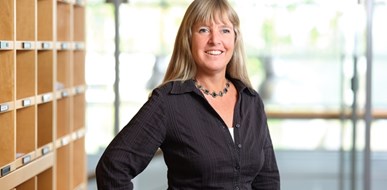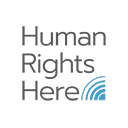Yvonne Donders Elected to the UN Human Rights Committee
Published 5 July 2022By Kaya van der Horst

College voor de Rechten van de Mens
The NNHRR is proud to announce that Prof. Yvonne Donders, Chair of the NNHRR Steering Committee, has been elected to the UN Human Rights Committee (HRC) for the 2023-2026 term. Yvonne was nominated in her personal capacity by the Kingdom of The Netherlands and the election took place this June at the United Nations Headquarters in New York. After officially being nominated in the fall of 2021, Yvonne actively campaigned together with Dutch Ministry of Foreign Affairs through a variety of channels. “I had 70 bilateral talks with State parties, both online and at the UN in New York,” she recounted. In addition to a campaign film and widely distributed brochures, Yvonne’s campaign for candidacy received strong support from governmental organizations. “Not only the Ministry in The Hague, but also all embassies worked very hard to get as many votes as possible from countries,” Yvonne said. “The Dutch Permanent Representation to the UN in New York also spent months bringing my candidacy to the attention of State parties,” she added.
On 17 June 2022, State Parties to the International Covenant on Civil and Political Rights (ICCPR) elected nine new members to the UN HRC. The HRC is a body of 18 independent experts that monitor the implementation of the ICCPR by State Parties. Yvonne was elected out of 17 nominated candidates for a term of four years. Her election came with 132 votes, indicating widespread support amongst the State Parties. For Yvonne, this sweeping support was very humbling. “We did get the idea that we had a good chance in the elections, but you never know until the votes are counted. The fact that we got the most votes—132 out of 168—was also really special,” she said. The independent experts composing the HRC are recognized as persons of high moral character and esteemed competence in the field of human rights.
Indeed, Yvonne has an impressive record in her work on human rights and international law: Her past roles include Director of the Amsterdam Center for International Law, Programme Specialist on human rights at the Secretariat of UNESCO in Paris, member of the National Commission for UNESCO, member of the European Expert Network on Culture and Chair of the Dutch United Nations Association. Currently, Yvonne serves as a Member of the Human Rights Committee of the Advisory Council on International Affairs of the Ministry of Foreign Affairs (AIV), Member of the Editorial Board and Executive Editor of the Netherlands Quarterly of Human Rights (NQHR), Member of the Board of the Royal Netherlands Society of International Law (KNVIR) and Chair of the Advisory Board of the “Shelter City” project for human rights defenders. Additionally, Yvonne works as Commissioner at the Netherlands Human Rights Institute, alongside her faculty appointment at the University of Amsterdam (UvA). During her term at the HRC, Yvonne will continue her work at the UvA as a human rights professor. She hopes to closely involve her students in the work of the HRC through, for example, clinic type education.
Personally Yvonne, looks forward to her new role as an independent expert of the HRC, as both the UN and multilateralism have long been points of fascination. “My work as expert of the HRC will be a great challenge, but also a great opportunity to monitor and speak about human rights with so many different stakeholders and about so many different issues because the ICCPR includes a large variety of human rights” she said.
The UN Human Rights Committee
The work of the Committee is multifaceted and challenging. All State Parties to the ICCPR are obliged to submit regular reports to the Committee on how civil and political rights are being implemented in their country. In the form of ‘concluding observations,’ the Committee addresses its concerns and recommendations to State Parties upon examination. Importantly, the Committee also publishes General Comments—its interpretation on the content of human rights provisions—on thematic issues or its methods of work. Considering that the Committee’s membership includes individuals from all over the world who serve in their personal capacity, the Committee retains a high degree of moral authority. Other competences of the Committee include its power to consider inter-state complaints and to examine individual complaints regarding alleged violations of the Covenant by States parties to the Optional Protocol. This monitoring function of the Committee has directly contributed to a heightened enjoyment of the civil and political rights guaranteed by the ICCPR’s Covenant by influencing changes of law, policy and practice, both at the national level and in the context of individual cases. That being so, the increased global backlash against civil liberties leaves the Committee with an arduous task of striving for the enjoyment of all civil and political rights, in full and without discrimination, by all people. The Committee meets in Geneva and holds three sessions per year.
In her new role as an independent expert of the HRC, Yvonne firmly believes in the need to propagate both the indivisibility and interdependence of all human rights. “We have seen that clearly during the pandemic, that the right to health and the right to life are interconnected with, for instance, the rights to freedom of expression and assembly and the right to education,” she explained. “Furthermore, monitoring the rights protected in the ICCPR requires attention for particular groups, such as women or persons with disabilities, whose rights are also in a specific treaty,” she added. As UN treaty bodies have their own particular treaty to monitor, Yvonne believes that the interdependency of human rights necessitates continuous coordination and exchange. “I would be in favor of, for instance, adopting joint General Comments with several treaty bodies,” she said.
Continuous coordination between treaty bodies is also crucial in light of the expansion of the UN system of treaty bodies, whose tasks partially overlap: “Some rights are enshrined in several treaties and almost all of the treaties have at least a large group of the same State Parties, which subsequently need to report to all of these bodies,” Yvonne explained. Consequently, Yvonne believes coordination and cooperation within the UN system will be both a challenge and a goal during her work within the HRC.
Newly Elected Members
In addition to Yvonne, other elected members include Mr. Farid Ahmadov (Azerbaijan), Mr. Rodrigo A. Carazo (Costa Rica), Mr. Laurence R. Helfer (United States of America), Mr. Bacre Waly Ndiaye (Senegal), Mr. Hernán Quezada Cabrera (Chile), Ms. Tijana Šurlan (Serbia), Mr. Koji Teraya (Japan) and Ms.Hélène Tigroudja (France). The nine newly elected candidates reflect the Committee’s efforts to give due consideration to equitable geographical distribution, representation of different legal systems and gender balance. The full profiles of the other newly elected members can be viewed here.


